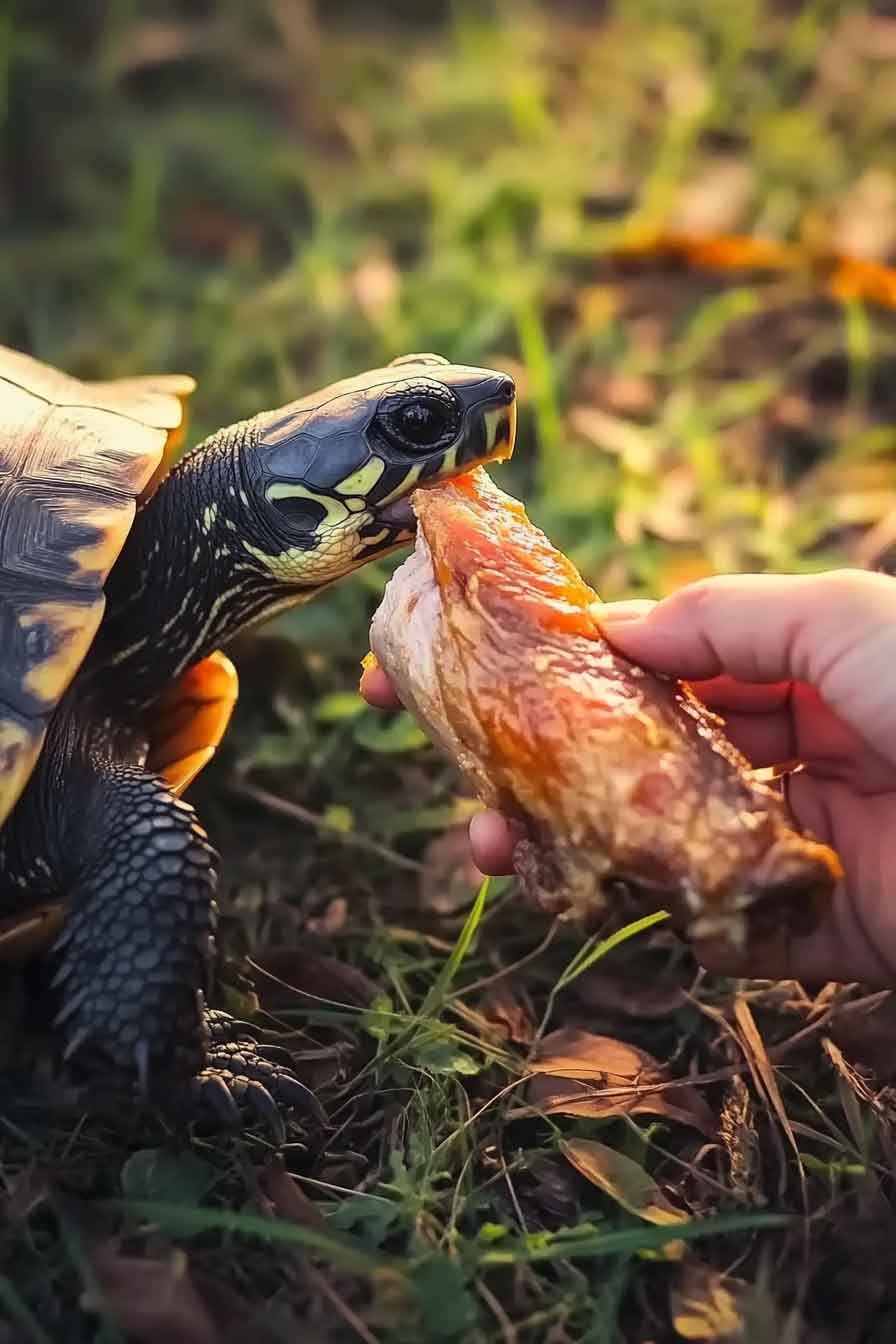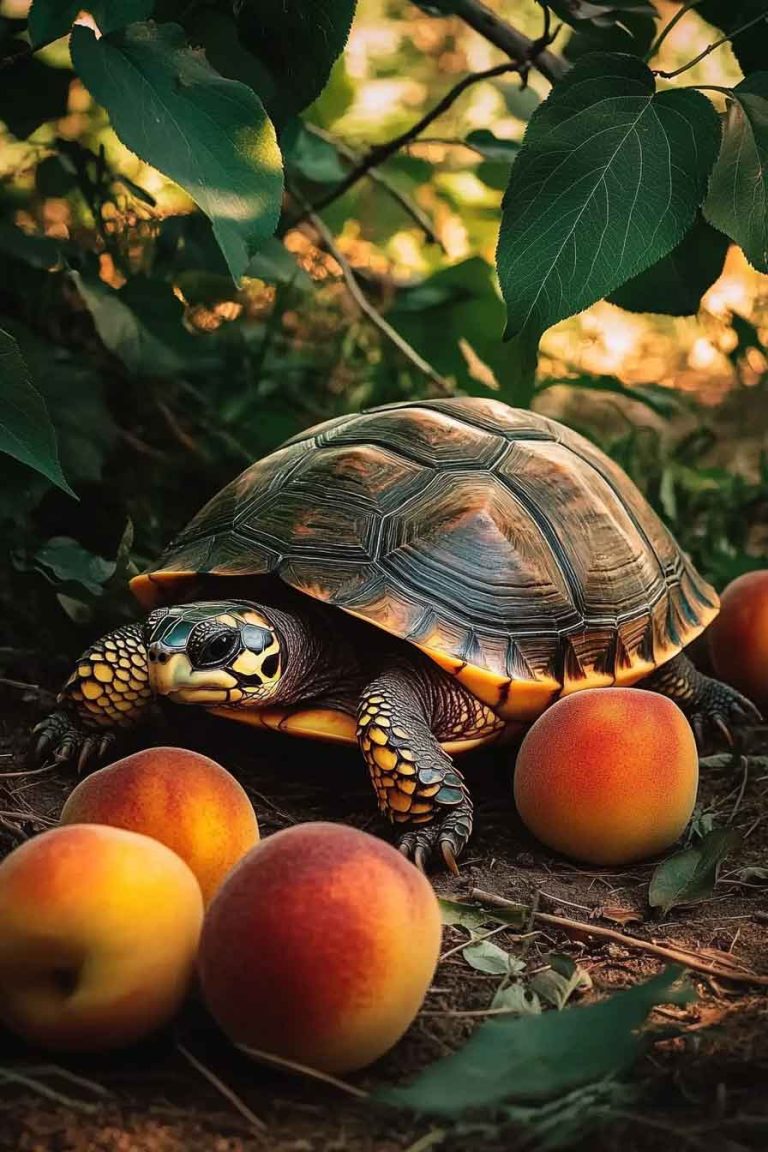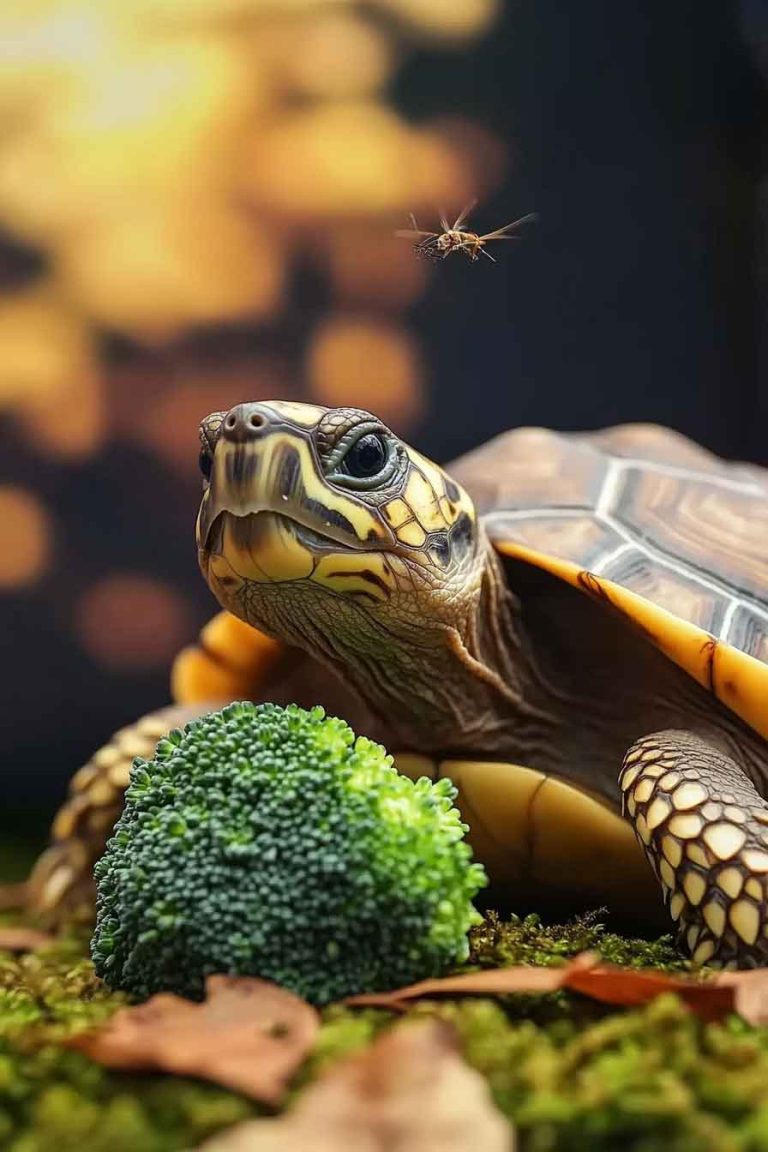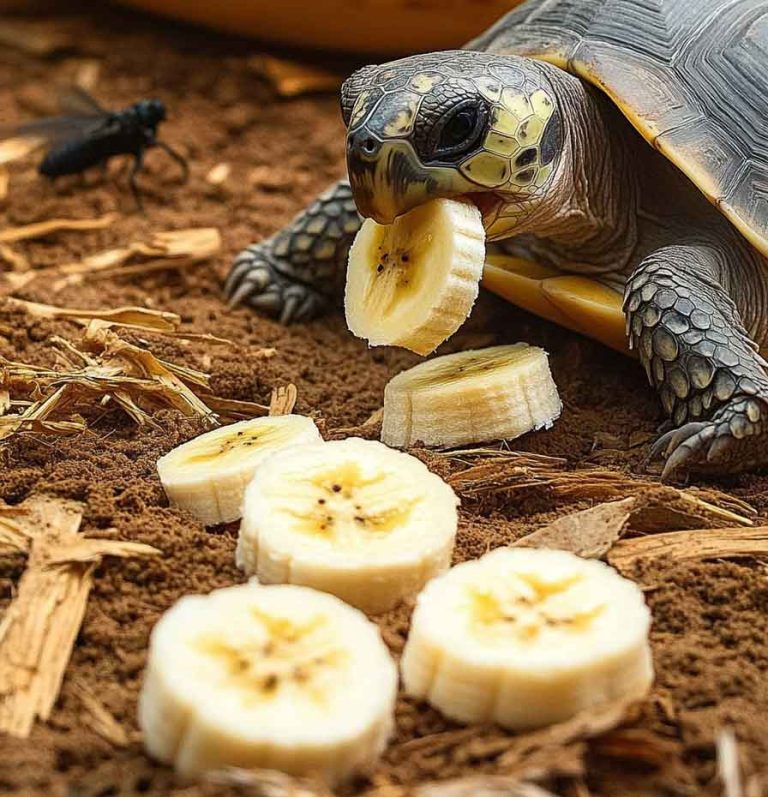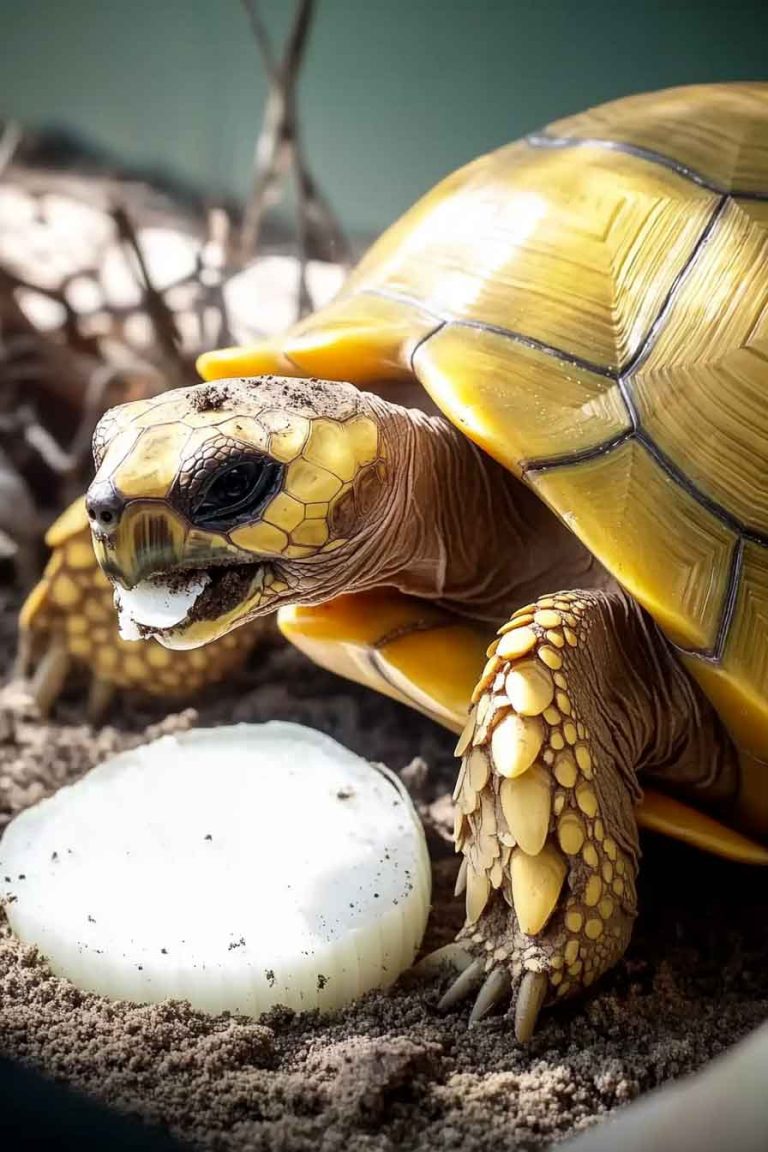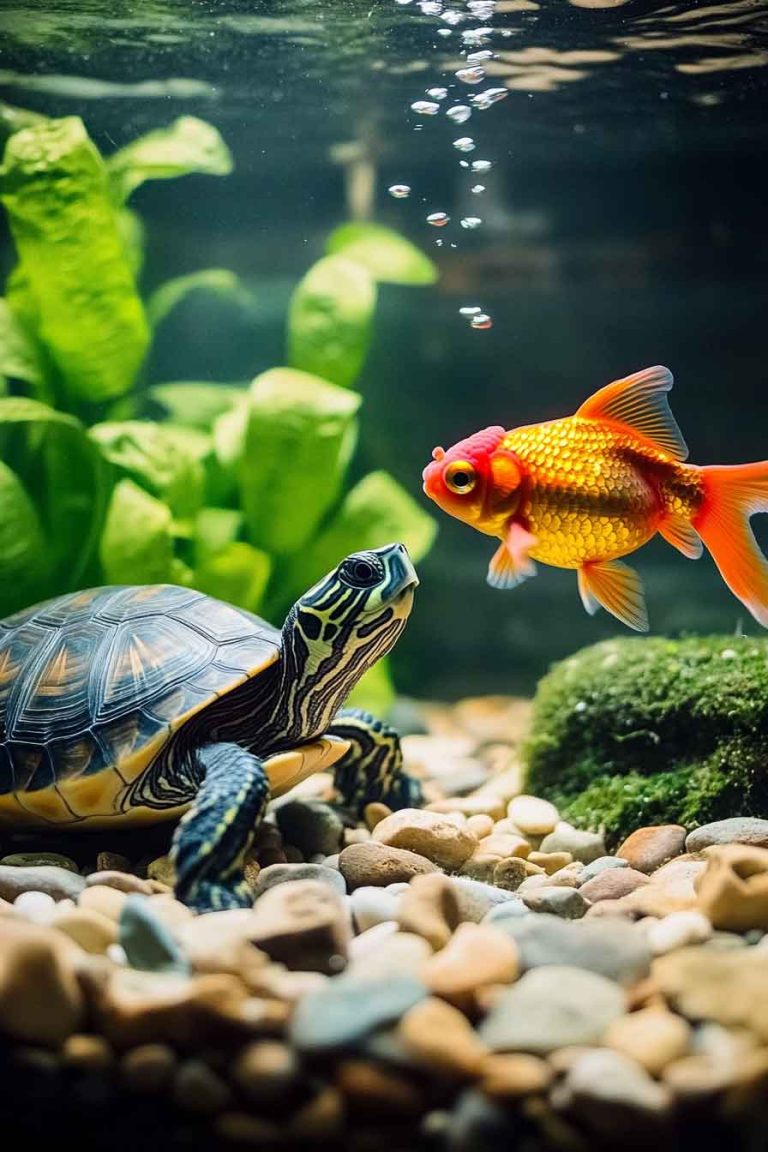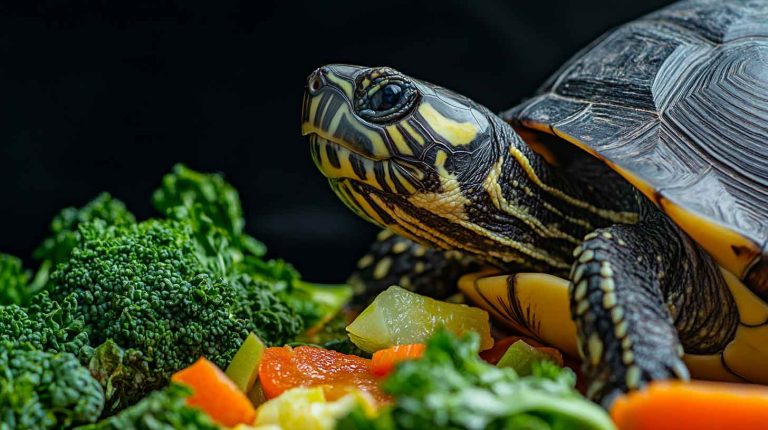Can Turtles Eat Turkey? The Shocking Truth Every Owner Must Know”
If you’re a turtle owner like me, you’ve probably found yourself wondering about sharing your holiday feast with your shelled companion. With Thanksgiving and Christmas around the corner, turkey becomes a staple on our tables, and it’s natural to want to include our pets in the celebration. But before you offer that piece of turkey…
If you’re a turtle owner like me, you’ve probably found yourself wondering about sharing your holiday feast with your shelled companion. With Thanksgiving and Christmas around the corner, turkey becomes a staple on our tables, and it’s natural to want to include our pets in the celebration. But before you offer that piece of turkey to your turtle, let me help you understand whether it’s safe or potentially harmful.
So, can turtles eat turkey? The answer is yes, but with important limitations. Turtles can eat small amounts of plain, cooked turkey as an occasional treat, but it should never be a regular part of their diet. Turkey is high in protein and fat, which can be problematic for turtles if given in large quantities or too frequently. Additionally, seasoned or processed turkey can be harmful to your turtle’s health.
In this comprehensive guide, I’ll walk you through everything you need to know about feeding turkey to your turtle. We’ll explore the nutritional aspects, potential risks, and safe feeding practices to ensure your turtle stays healthy and happy.
Can You Feed Turkey To Your Pet Turtle?
The short answer is – yes, but with significant caution and moderation. Unlike vegetables that might seem automatically safe, turkey is a protein-rich meat that requires careful consideration before offering it to your turtle.
Turtles are naturally omnivores in the wild, meaning they consume both plant and animal matter. However, their digestive systems are designed to process specific types of proteins in particular quantities. Turkey, being a domesticated bird with higher fat content than wild prey, presents unique challenges for turtle digestion.
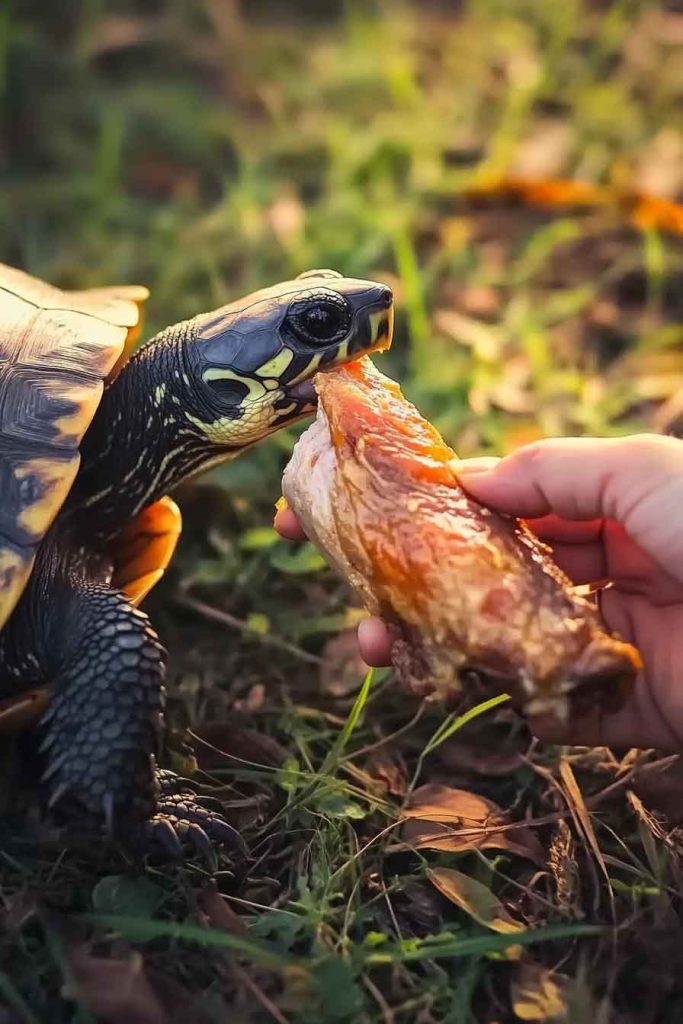
Let me break down the nutritional content of 100 grams of roasted turkey (without skin or seasoning):
Protein: 29.9 g
Fat: 6.1 g
Carbohydrates: 0 g
Calcium: 21 mg
Phosphorus: 230 mg
Sodium: 70 mg
Potassium: 298 mg
Vitamin B12: 1.8 mcg
Niacin: 11.8 mg
Iron: 1.8 mg
Looking at this nutritional profile, several concerns immediately stand out for turtle health. The protein content is extremely high compared to what turtles typically consume in the wild. While protein is essential for turtle growth and shell development, too much can strain their kidneys and liver.
The calcium to phosphorus ratio is particularly concerning. Turtles require a 2:1 calcium to phosphorus ratio for optimal health. Turkey provides a 1:11 ratio (approximately), which is heavily skewed toward phosphorus. This imbalance can lead to calcium deficiency over time, resulting in metabolic bone disease and shell problems.
The fat content, while not excessive, is still higher than what most turtles encounter in their natural diet. Wild turtles typically consume lean insects, fish, and aquatic plants. The concentrated fat in turkey can be difficult for them to process efficiently.
Do Turtles Like Turkey?
In my experience observing turtles, most will eagerly consume turkey if offered. Turtles are naturally curious eaters and are often attracted to the smell and taste of cooked meat. However, just because they’ll eat it doesn’t mean they should.
I’ve noticed that turtles tend to show enthusiasm for turkey, especially if they’re used to a varied diet. The rich protein and fat content can be quite appealing to them. However, this enthusiasm shouldn’t guide our feeding decisions – we need to prioritize their health over their preferences.
Health Risks for Turtles Eating Turkey
While turkey isn’t as immediately toxic as some foods, it does pose several health risks when fed improperly or in excess. Let me walk you through the main concerns I’ve observed and researched over my years of turtle care.
Kidney and Liver Strain
The exceptionally high protein content in turkey can put significant stress on your turtle’s kidneys and liver. These organs are responsible for processing and filtering proteins, and they’re not designed to handle such concentrated amounts regularly.
When turtles consume too much protein, their kidneys must work overtime to eliminate the excess nitrogen waste. This can lead to kidney damage over time, particularly in older turtles or those with pre-existing health conditions. I’ve seen cases where turtles developed kidney problems after being fed high-protein diets consistently.
The liver also bears the burden of processing these proteins. Excessive protein intake can cause liver enlargement and dysfunction, which can be life-threatening if not addressed promptly.
Calcium-Phosphorus Imbalance
This is perhaps the most serious long-term risk of feeding turkey to turtles. As I mentioned earlier, turkey has a severely imbalanced calcium-to-phosphorus ratio. This imbalance can trigger a cascade of health problems.
When phosphorus levels are too high relative to calcium, the phosphorus begins to bind with calcium in the turtle’s body, making it unavailable for essential functions. This leads to:
- Metabolic Bone Disease (MBD): The most common result of calcium deficiency
- Shell softening and deformation: The shell becomes weak and may develop pyramiding
- Bone brittleness: Bones become fragile and prone to fractures
- Muscle weakness: Calcium is essential for proper muscle function
I’ve personally witnessed turtles develop MBD from improper diets, and it’s heartbreaking to see. The good news is that it’s entirely preventable with proper nutrition.
Digestive Issues
Turkey’s high fat content can cause digestive problems in turtles. Their digestive systems are adapted to process leaner proteins and plant matter. When faced with rich, fatty foods, they may experience:
- Diarrhea: Often the first sign of dietary upset
- Vomiting: Less common but possible in severe cases
- Lethargy: Due to energy being diverted to digest difficult foods
- Loss of appetite: As their system struggles to process the food
Sodium Concerns
Even plain turkey contains natural sodium, and if you’re offering seasoned turkey, the sodium content increases dramatically. Turtles have very low sodium requirements, and excess sodium can lead to:
- Dehydration: Despite having access to water
- Kidney problems: Exacerbating the protein-related issues
- Cardiovascular stress: Though less documented in turtles
Contamination Risks
Turkey, like all poultry, can harbor harmful bacteria such as Salmonella and Campylobacter. While cooking eliminates most of these risks, improper handling or storage can still pose problems. Turtles can be particularly susceptible to foodborne illnesses, especially if their immune systems are compromised.
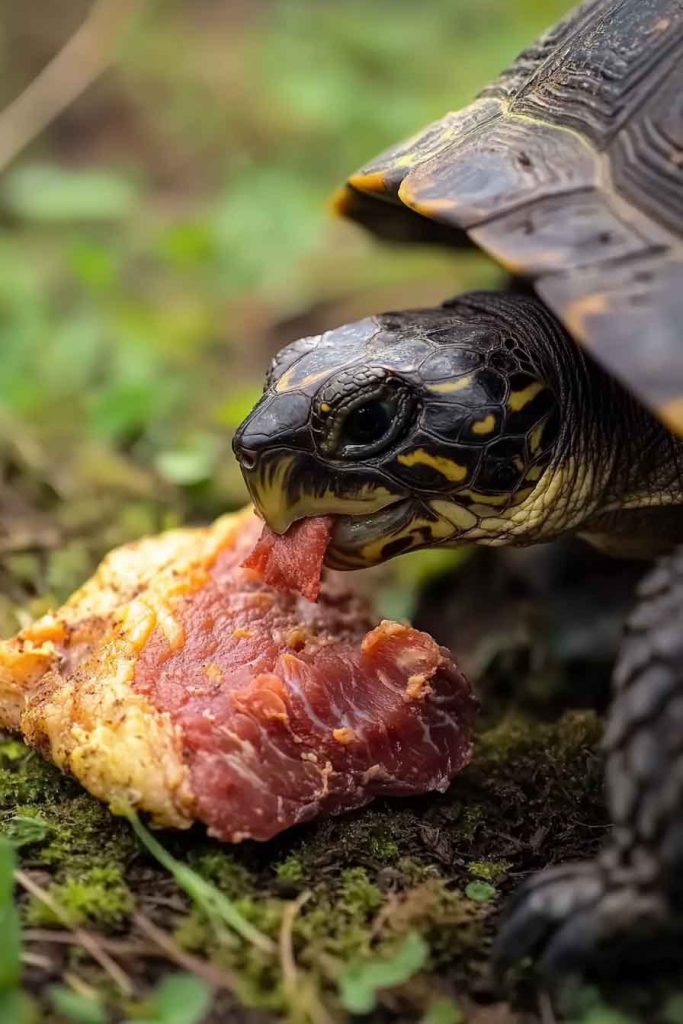
How Much Turkey Should Turtles Eat?
Based on my experience and veterinary recommendations, turkey should be treated as an occasional treat rather than a dietary staple. Here’s my recommended approach:
Frequency Guidelines
- Adult turtles: No more than once every 2-3 weeks
- Juvenile turtles: Even less frequently, perhaps once a month
- Baby turtles: I recommend avoiding turkey entirely until they’re at least 6 months old
Portion Sizes
When you do offer turkey, portion control is crucial:
- Large turtles (6+ inches): A piece no larger than your thumbnail
- Medium turtles (3-6 inches): A piece about half the size of your pinky nail
- Small turtles (under 3 inches): A tiny morsel, if any at all
Remember, these are maximum amounts, not requirements. Many turtle experts recommend even smaller portions or avoiding turkey altogether.
Can You Feed Turkey to Baby Turtles?
I strongly advise against feeding turkey to baby turtles under any circumstances. Baby turtles have incredibly delicate digestive systems that are still developing, and their nutritional needs are very different from adult turtles.
Young turtles require a diet that’s approximately 80% protein and 20% vegetation, but this protein should come from appropriate sources like small insects, aquatic invertebrates, and specially formulated turtle pellets. Turkey is far too rich and concentrated for their tiny systems to handle.
The risks I mentioned earlier – kidney strain, calcium imbalance, and digestive issues – are magnified exponentially in baby turtles. Their organs are still developing and simply cannot process such dense nutrition safely.
Instead of turkey, focus on providing baby turtles with:
- High-quality commercial turtle pellets designed for juveniles
- Small insects like crickets or mealworms
- Tiny pieces of fish
- Appropriate aquatic plants
Safe Preparation Methods (If You Choose to Offer Turkey)
If you decide to occasionally offer turkey to your adult turtle despite the risks, proper preparation is absolutely critical. Here’s how I recommend doing it safely:
Preparation Steps:
- Use only plain, unseasoned turkey: No salt, pepper, herbs, or spices
- Remove all skin and visible fat: These parts are too rich for turtles
- Cook thoroughly: Ensure the internal temperature reaches 165°F (74°C)
- Cool completely: Never offer hot food to turtles
- Cut into appropriate sizes: Follow the portion guidelines I provided earlier
- Serve fresh: Don’t leave turkey in the habitat for more than an hour
What to Avoid:
- Seasoned turkey: Any turkey with salt, herbs, or spices
- Processed turkey: Deli meat, turkey bacon, or turkey sausage
- Turkey with bones: These can be choking hazards
- Leftover turkey: Food that’s been sitting out or reheated multiple times
Species-Specific Considerations
Different turtle species have varying dietary needs, so let me address some common pet turtle species:
Can Box Turtles Eat Turkey?
Box turtles are omnivores with a more varied diet than aquatic species, but turkey still poses the same risks. If you have a box turtle, the same guidelines apply – occasional small amounts of plain, cooked turkey at most. However, box turtles do better with more natural protein sources like earthworms and insects.
Can Red-Eared Slider Turtles Eat Turkey?
Red-eared sliders are particularly sensitive to high-protein diets as adults. While juveniles need more protein, adult red-eared sliders should have a diet that’s about 25% protein and 75% vegetation. Turkey is far too protein-dense for regular consumption. If you offer it at all, make it extremely rare and in tiny amounts.
Can Painted Turtles Eat Turkey?
Painted turtles have similar dietary needs to red-eared sliders. They’re omnivores but lean more toward plant matter as adults. The same precautions apply – turkey should be avoided or offered very sparingly.
Can Snapping Turtles Eat Turkey?
Snapping turtles are more carnivorous than other species and might seem like better candidates for turkey. However, they still face the same risks from the high protein content and calcium-phosphorus imbalance. Wild snapping turtles eat fish, amphibians, and aquatic invertebrates – not concentrated poultry.
Alternative Protein Sources
Instead of turkey, I recommend these safer protein options for your turtle:
- Feeder fish: Goldfish, guppies, or minnows (occasionally)
- Insects: Crickets, mealworms, waxworms
- Aquatic invertebrates: Bloodworms, brine shrimp
- Commercial turtle pellets: Specifically formulated for nutritional balance
- Cooked chicken: In very small amounts, less fatty than turkey
- Hard-boiled eggs: Occasionally, including the shell for calcium
Frequently Asked Questions (FAQs)
Can I give my turtle turkey on Thanksgiving? While it’s tempting to include your turtle in holiday celebrations, it’s better to stick to their regular diet. If you want to give them something special, offer a favorite vegetable or a small piece of fish instead.
What if my turtle accidentally ate seasoned turkey? Monitor your turtle closely for signs of digestive upset like diarrhea, vomiting, or lethargy. Ensure they have access to clean water and consider contacting a reptile veterinarian if symptoms persist.
Is ground turkey better than sliced turkey? Ground turkey is actually worse because it often contains more fat and may include skin or other parts that should be avoided. Stick to plain, lean turkey breast if you choose to offer any at all.
Can I mix turkey with vegetables? Mixing turkey with vegetables doesn’t make it safer – the protein and fat content remain the same. It’s better to offer appropriate vegetables separately.
Conclusion
While turtles can technically eat small amounts of plain, cooked turkey occasionally, it’s not an ideal food choice for our shelled friends. The high protein content, poor calcium-to-phosphorus ratio, and potential for digestive issues make turkey a risky treat at best.
As responsible turtle owners, we should prioritize foods that closely mimic what turtles would eat in the wild. There are plenty of safer, more appropriate protein sources available that won’t put your turtle’s health at risk.
If you do choose to offer turkey, remember the key principles: plain preparation, tiny portions, infrequent feeding, and close monitoring for any adverse reactions. However, I personally recommend skipping turkey altogether and sticking to turtle-appropriate foods.
Your turtle’s health and longevity depend on consistent, appropriate nutrition. When in doubt, consult with a reptile veterinarian who can provide personalized dietary recommendations based on your turtle’s species, age, and health status. After all, there’s no holiday treat worth risking your beloved pet’s wellbeing.

